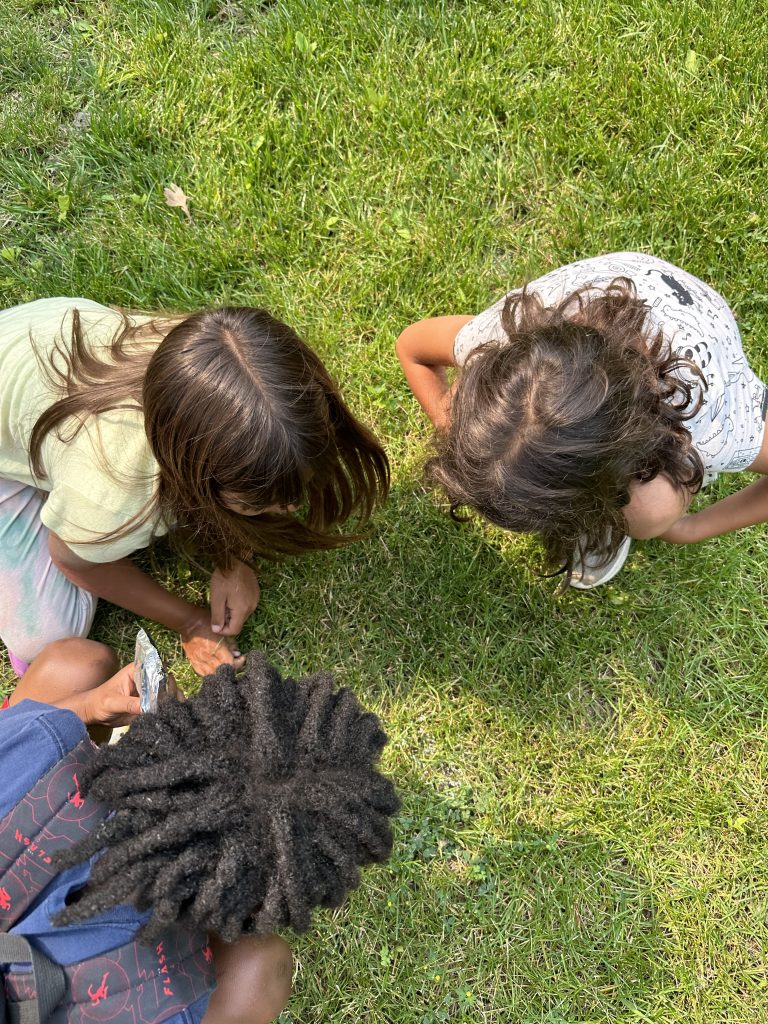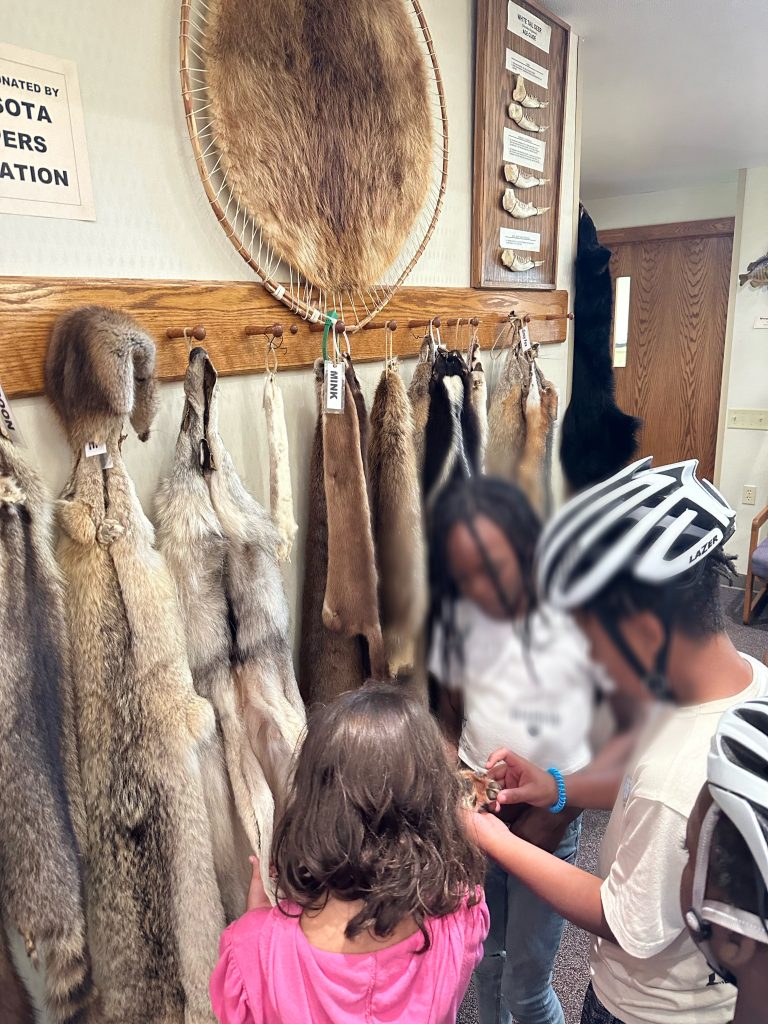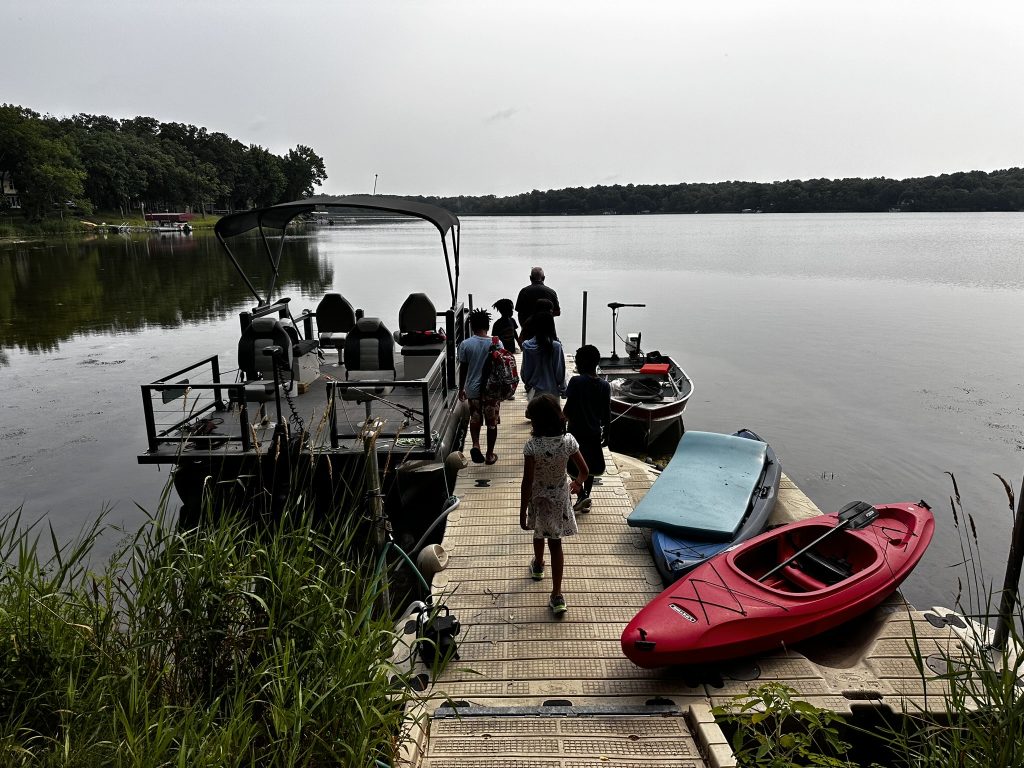by Judi Lee
At the swim camp for nine kids recently housed at the Lakes Crisis and Resource Center, our focus was not only on the improvement of their swimming skills but also on the development of an environmentally conscious mindset. Those three weeks were jam-packed with art projects, field trips, and outdoor adventures, many of which culminated in preparing the campers for our Junior Lake Steward day during the last week.
The first week was chaotic, filled with constant reminders to pick up trash, keep food out of the lake, and use kind words. For most of these kids, consciousness about the environment is not a value that is held closely, simply because of a lack of exposure to the outdoors. However, through hands-on activities that channeled their endless energy into constructive projects, they started to become more aware of their natural surroundings. We grew butterflies from caterpillars, and the day we watched them fly away into the wild cemented the idea of the beauty and fragility of our environment through a tangible example. This idea was reinforced through other nature-based activities such as fishing, looking through sand samples, and lessons about the lake.

During our visit to the Department of Natural Resources office, the kids, having learned the basics of the ecosystem that surrounded them in Detroit Lakes, couldn’t keep their curious hands off the pelts and taxidermied animals. After our DNR field trip, a tour of Detroit Lakes’ Central Market focused on sustainable shopping, an introduction to MNLR’s Lake Steward program, and countless hours playing in Detroit Lake, the campers were ready to become Junior Lake Stewards.

We arrived on our last Monday of camp at Stephen Corbin’s house on Fox Lake, the kids eager to put their preparation to work and become Lake Stewards. Mr. Corbin was extremely generous in providing a real-life example of a Lake Steward by giving us a walking tour of his property and highlighting the strategies he implements to keep his lake and the area around it clean and healthy. After the initial fidgeting and distractions, the campers were captivated by the unique ways that Mr. Corbin maintains the natural, vibrant ecosystem surrounding his property. From a stunning rain garden to special boat storage to unique lawn care, each child took away a multitude of practices that they can use to preserve their local environment.

After the tour, each camper was presented with a Junior Lake Steward certificate and a packet of wildflower seeds, now ready to put their environmental education to work in their own communities. Then we made the trek down the road to Mr. Corbin’s neighbor, Carrie Cwikla’s house, for the new Junior Lake Stewards to make their first evaluation.
To evaluate Mrs. Cwikla’s fitness to be a Lake Steward, the kids used what they had learned from preparations during the first few weeks of camp, as well as new knowledge of specific strategies from Steve. After asking questions and investigating the yard and shoreline, they determined that Mrs. Cwikla had passed the Lake Steward examination! The campers presented her with a Lake Steward sign to put in her yard, as well as to John McLaughlin, another recently certified Lake Steward in the area, and they all posed for photos.
At lunch after the Junior Lake Steward event, the campers were abuzz, recalling what they had learned from the tour and admiring their certificates. For the rest of camp, each one of the kids was more attuned to how their own daily practices, as well as others’, affected the lake and the environment surrounding it. Through obstacle courses, beading, and, of course, swimming, they took note of how each of their actions was impacting the environment, an attention that they lacked at the beginning of camp.
Accessible environmental education is vital for the preservation of fragile ecosystems across the globe. Early outdoor education is sure to instill a lifelong conservational mindset, ensuring hope for our planet’s future. If all children are exposed to the magnificence and vulnerability of their environment, they will take on practices to love and preserve it, and we will be one step closer to widespread environmental awareness.
